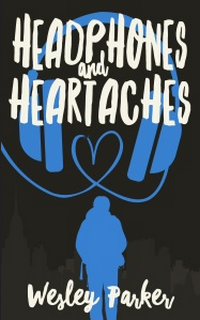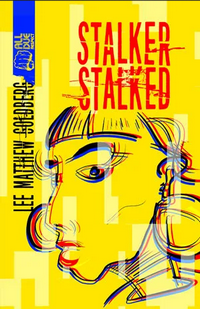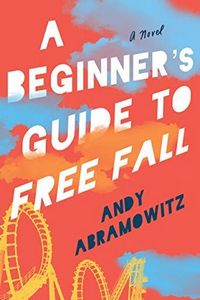You know how sometimes just the right book comes at just the right time? A book you don’t realize you needed until it had done its job on your psyche? As you’ve probably guessed, that’s what Headphones and Heartaches was for me. So, yeah, this is going to be a rave. It’s also going to be shorter than I want it to be, but that’s only because this won’t ever get posted if I keep tweaking and rewriting it (this was supposed to go up seven days ago).

“One day you’re gonna look back and realize these are the best days of your life.”
I’m living in a foster home while my mother is getting treatment for a heroin addiction. If these are the best days, maybe I should just give up now.
What’s Headphones and Heartaches About?
Percy Martin is sure that the social worker he meets next to his mother’s hospital bed means well. But Percy’s not interested in what he’s offering, Percy trusts that he can do better on his own than any foster situation that Alex can put him in. When they meet, no one’s sure that Percy’s mother will survive her latest overdose, and Alex’s hands are tied.
So he makes Percy an offer—stick with this foster parent a year, and Alex will do what he can to reunite Percy and his mom. There’s an earnestness about Alex, and (he won’t really admit this to himself) Percy just wants a break from it all—so he accepts the offer.
Alex brings him to Grace Wilson*. A kind, gracious, waitress who has decided the right thing to do is open her heart and home to a teen who needs both. Percy’s life is changed forever immediately.
* I should devote 3-4 paragraphs to her, but I don’t have the time, but she’s a great character.
He has food—and never has to worry about where the next meal is coming from. She helps him get money—and learn to manage it. He learns to sleep on a bed. He makes friends—real friends. He falls for a girl. He—and he says this several times—has a chance to be normal.
And he loves it. How could you not?
But he’s torn—because the cost of all of this change is the relationship with his mother. He feels he’s abandoned her, taken away her motivation to change, removed his support from her when she needs him the most. Is having a better life worth that?
Opium’s Victims
Percy’s mom, Wanda, is never made out to be the villain of the piece. Never. She is deeply flawed, and Percy doesn’t flinch from that. But she’s also the one constant in his life and has clearly done what she can to be a mother and provider to him. She clearly loves him.
But her addiction runs her life, she battles it, but not effectively, and that has consequences for both of them.
One of Parker’s most successful moves is showing that the statistics and reports about the opioid epidemic underreports its victims. It’s not just Wanda—it’s Percy. It’s Grace. It’s Percy’s friends. If Wanda had other family or friends, they would be in that number. And it’s likely that the turmoil, emotional upheaval, and financial impact goes beyond Grace and Percy’s friends to their friends and family…and so on. Percy thinks he can even see the toll this takes on the Judge dealing with his foster care. Yes, Wanda is the primary victim, and addicts like her ought to be the focus of the efforts to combat the epidemic—but not the sole focus.
Headphones, Comedy Albums, and Mixtapes
The 3.5mm jack connects my favorite artists right into my soul like an IV, securing my hopes and dreams that wither under the assault of everyday life. They’ve been there on the nights when the heat wasn’t, at the dinner table when the food wasn’t, reminding me that better times would come, even if they couldn’t give me an estimated arrival date.
Percy finds refuge from his circumstances in movies (VHS tapes he can buy at pawn shops and the like) and music (largely pirated from public library offerings). Music is the one he talks more about, and he has strong opinions about it—while also having very eclectic tastes.
What kind of strong opinions? Aside from Rob Sheffield or Nick Hornby’s creation, I haven’t seen anyone with such detailed specifications for putting together a mixtape—and I loved watching him obsess about things like that. He has much more to say on the subject of wired headphones than I quoted above—and who cares that much about those? I could go on, but you get the idea.
Along the same lines…what he and Grace say about comedy albums? I didn’t realize other people felt that way about them, too. I really would like to see a second edition of the book (or a companion book) containing essays Percy writes for English class about things like comedy albums and their impact on his life, and various topics related to music/music appreciation. Just based on what he says in this book, they’d be fantastic.
It’s things like this that transform Percy from a pitiable kid in hard circumstances to a rounded character that you can develop an emotional bond with. Parker truly nailed this kind of thing.
Categorizing
By and large anymore, it seems that if the book is about a teenager, it must be a Young Adult novel. But it doesn’t seem as if this is being marketed as one. Would it work for a YA audience? Sure. Well, at least I think it would. But really it works for anyone who likes a good coming-of-age tale.
Percy is a teen—and his emotions swing widely and quickly as such. But anyone who is, or who can remember, what that’s like will easily be able to appreciate that. At the same time, thanks to his hard life, he has a certain perspective that gives a layer of maturity to his thinking—so snooty “adult” readers don’t have to sully themselves with something like a book written for teens.
So, what did I think about Headphones and Heartaches?
On Wheel of Fortune there’s always one guy that keeps asking for letters even though it’s clear to everyone else what the answer is. I feel like that guy right now, because in my heart I know the answer, I’m just hoping that it’s the wrong one.
With only a couple of exceptions, the adults that Percy meets after his mother’s overdose are almost too good to be true. I’d be tempted to call them all Mary Sues/Marty Sues. But part of it is that for Percy, these are responsible, caring, adults trying to help him—it’s easy to see why Percy would largely describe them in glowing terms. And even then, the adults aren’t boring—they’re interesting, funny, and inspirational.
But the exceptions? Boy howdy, they are definitely not too good (nor are they too bad to be realistic…). But let’s not focus on them
But Percy and his classmates, playmates in flashbacks, and friends are absolutely well-rounded and developed—as they’re (largely) the focus of the book, that’s the important part. They sound like, think like, and feel like teens (with varying degrees of maturity). They’re some of the better teen characters I remember reading.
You take characters like that and put them out into the world, and you’ve got yourself a good start to a novel. Add in a compelling story—and an emotional depth that fits the characters, and you’ve got a knockout. This is what Parker has delivered.
As the end neared, I jotted a note,”I am going to end up crying.” And while I didn’t technically weep, there were several moments as I finished the book that I came awfully close to it. Those moments were all over the map, I should add—heartbreaking, tragic, heartwarming, and just sweet. Parker just doesn’t get you with human grief and anger, he gets you with the wonderful moments, too.
This is a sweet book, a touching book—an occasionally hilarious book (with some truly cringe-worthy beats)—I guess it’s best summed up as a very human book. Parker got me to feel all sorts of things for these characters, to a degree I didn’t expect or was prepared for.
This is a special one, reader. You’d do yourself a favor if you picked it up.

This post contains an affiliate link. If you purchase from it, I will get a small commission at no additional cost to you. As always, opinions are my own.




![]()



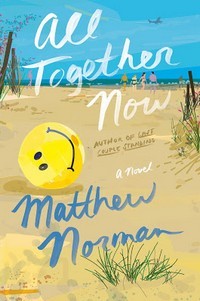


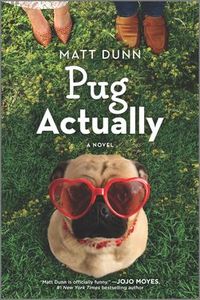

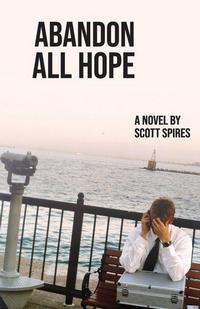
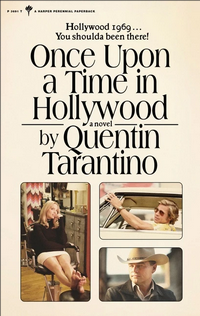

 Grab a book, any book.
Grab a book, any book.